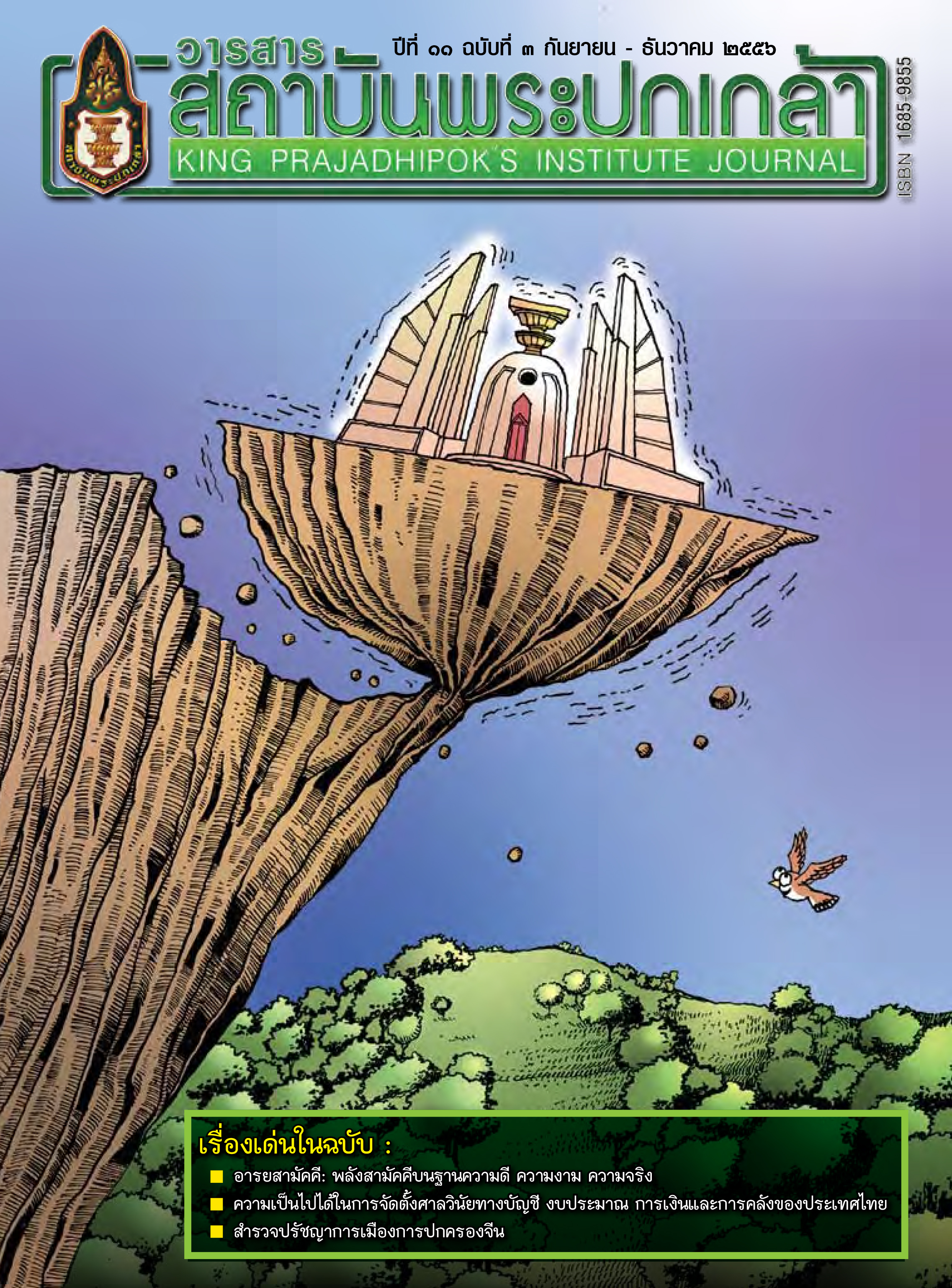The Impact from Association of South East Asian Nations on Decentralization Policies in Thailand
Main Article Content
Abstract
Research project, called “The Impact from Association of South East Asian Nations on Decentralization Policies in Thailand”, has been applied the concept of regression analysis to determine the feasible approach for institutional design under decentralized policies in Thailand. The results of institutional design under trade integration can be concluded as following: 1) the lower price under the domestic political stability enhances the benefits of the trade integration and 2) the competitive market structure by setting the tax efficiency can increase movement of capital and labors under trade integration. Therefore, the benefits of the institutional design associated with trade integration reflect the effective public policies, such as designing the federal and local government under the appropriate electoral systems indicating the economic and political development.
Article Details
@ 2020 King Prajadhipok's Institute The Government Complex Commemorating All Right Reserved.
References
โครงการ “การออกแบบระบบเลือกตั้งในฐานะสถาบันการเมืองเพื่อประโยชน์ในการพัฒนาประเทศไทย” สำนักงานกองทุนสนับสนุนการวิจัย ๒๕๕๖.
Grossman Philip J., and Edwin G. West. 1994. Federalism and the Growth of Government Revisited, Public Choice, 79(½):19-32.
Henry Teune. Jan., 1982. Decentralization and Economic Growth: Government and Economic Performance, Annals of the American Academy of Political and Social Science, (459):93-102.
Lars P. Feld. 2000. Tax Competition and Income Redistribution: An Empirical Analysis for Switzerland, Public Choice, 105(1/2):125-164.
Levy, P. I. (1997). A political-economic analysis of free trade agreement. American Economic Review, 87, 506-519.
Mansfield D. E.; Milner V. H.; Rosendorff B. P. (Summer, 2002). Why democracies cooperate more: electoral control and international trade agreements. International Organization, 56(3), 477-513.
O’Loughlin, J., Ward, M. D., Lofdahl, C. L., Cohen J. S., Brown D. S., Reilly D., Gleditsch, K. S., & Shin, M. (1998, December). The diffusion of democracy; 1946-1994. Annals of the Association of American Geographers, 88(4), 545-574.
Sirowy, L. & Alex, I. (1990). The effect of democracy on economic growth and inequality: a review. Studies in Comparative International Development, 25:126-157.
Sjöberg, Örjan and Fredrik Sjöholm. Jul., 2004Trade Liberalization and the Geography of Production: Agglomeration, Concentration, and Dispersal in Indonesia’s Manufacturing Industry, Economic Geography, 80(3): 287-310.
Staiger, R. W. (1995a). International rules and institutions for cooperative trade policy. In G. M. Grossman & K. Rogoff (Eds.), Handbook of international economics, 3:224-230. Amsterdam and New York: Elsevier Science.
Tongzon, J. L. & Khan H. (2005, December). The challenge of economic integration for transitional economies of Southeast. ASEAN Economic Bulletin, 22:266-283.ABI/INFORM Global. http://www.ombudsman.go.th/10/documents/law/Constitution2550.pdf Retrieved (27/09/2556)
http://data.worldbank.org/ Retrieved (27/09/2556)
http://www.imf.org/external/data.htm Retrieved (27/09/2556)
http://info.worldbank.org/governance/wgi/index.aspx Retrieved (27/09/2556)
http://www.nesdb.go.th/ Retrieved (27/09/2556)
http://www.systemicpeace.org/polity/polity4.htm Retrieved (27/09/2556)


